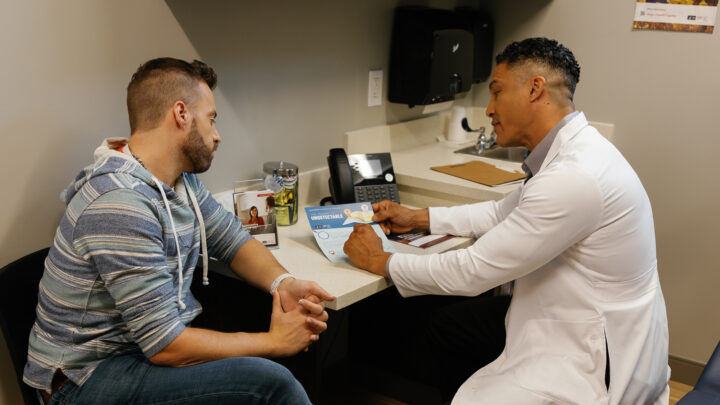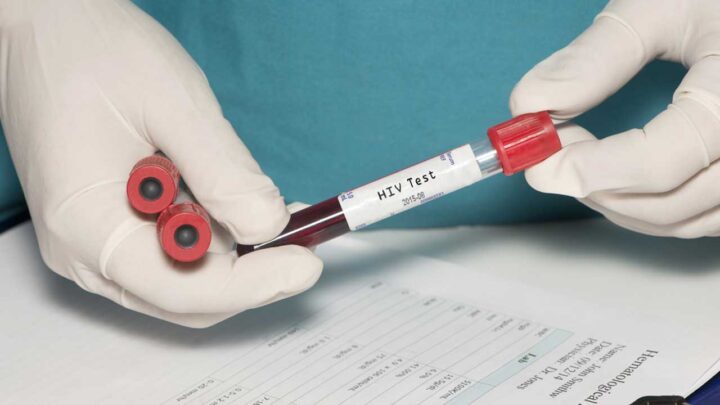
Taking a sexual history allows you to provide high-quality patient care by appropriately assessing and screening individuals for a broad range of sexual health concerns. For all adult and adolescent patients, taking a sexual history should be as routine as taking a patient’s blood pressure.
Did you know that 71% of patients “agree” or “strongly agree” that primary care doctors should ask all patients about sexual health?1 Many patients have sexual health questions and want your insight but are hesitant to initiate the conversation.
CDC’s 5Ps approach to taking a sexual history outlines the areas you need to cover when taking a patient’s sexual history: Partners, Practices, Protection from Sexually Transmitted Infections (STIs), Past History of STIs, and Pregnancy Intention.
By adopting the 5Ps approach, you can
- get a clearer picture of the patient’s health;
- prevent STI transmission; and
- help remove stigma around discussing sexual health, which is a barrier to ending the HIV epidemic.
Use the questions below to cover the 5Ps with your patients.
Partners
- Are you currently having sex of any kind—oral, vaginal, or anal—with anyone? (Are you having sex?)
- If “no,” follow up with
- Have you ever had sex of any kind with another person?
- If “no,” follow up with
- In recent months, how many sex partners have you had?
- What is/are the gender(s) of your sex partner(s)?
- Do you or your partner(s) currently have other sex partners?
Practices
- I need to ask some more specific questions about the kinds of sex you have had over the last 12 months to better understand if you are at risk for sexually transmitted infections or STIs. Would that be OK?
- We have different tests that are used for the different body parts people use to have sex. What kinds of sexual contact do you have, or have you had? What parts of your body are involved when you have sex?
- Do you have genital sex (penis in the vagina)?
- Anal sex (penis in the anus)?
- Oral sex (mouth on penis, vagina, or anus)?
- Are you a top and/or bottom?
- Have you or any of your partners used drugs?
- Have you exchanged sex for your needs (money, housing, drugs, etc.)?
Protection from STIs
- Do you and your partner(s) discuss STI prevention?
- If you use prevention tools, what methods do you use? (For example, external or internal condoms—also known as male or female condoms—dental dams, etc.)
- How often do you use this/these method(s)?
- More prompting could include specifics about
- Frequency, i.e., sometimes, almost all the time, all the time
- Times they do not use a method
- If “sometimes,” in which situations, or with whom, do you use each method?
- More prompting could include specifics about
- Have you received human papilloma virus (HPV), hepatitis A, and/or hepatitis B shots?
- Are you aware of pre-exposure prophylaxis or PrEP, a medicine that can prevent HIV? Have you ever used it or considered using it?
Past history of STIs
- Have you ever been tested for STIs and HIV? Would you like to be tested?
- Have you been diagnosed with an STI in the past?
- If “yes,” follow-up questions can include
- When? Did you get treatment?
- Have you had any symptoms that keep coming back?
- If “yes,” follow-up questions can include
- Has your current partner or any former partners ever been diagnosed or treated for an STI? Were you tested for the same STI(s)? Do you know your partner’s (or partners’) HIV status?
Pregnancy intention
- Do you think you would like to have (more) children at some point?
- If “yes,” follow up with
- When do you think that might be?
- How important is it to you to prevent pregnancy (until then)?
- If “yes,” follow up with
- Are you or your partner using contraception or practicing any form of birth control? Would you like to talk about ways to prevent pregnancy? Do you need any information on birth control?
Want more info on how to use CDC’s 5Ps method for taking a sexual history? Take the latest continuing medical education (CME) program, Individualizing Sexual Health Care: A Virtual Patient Simulation, from CDC and Medscape Education.














